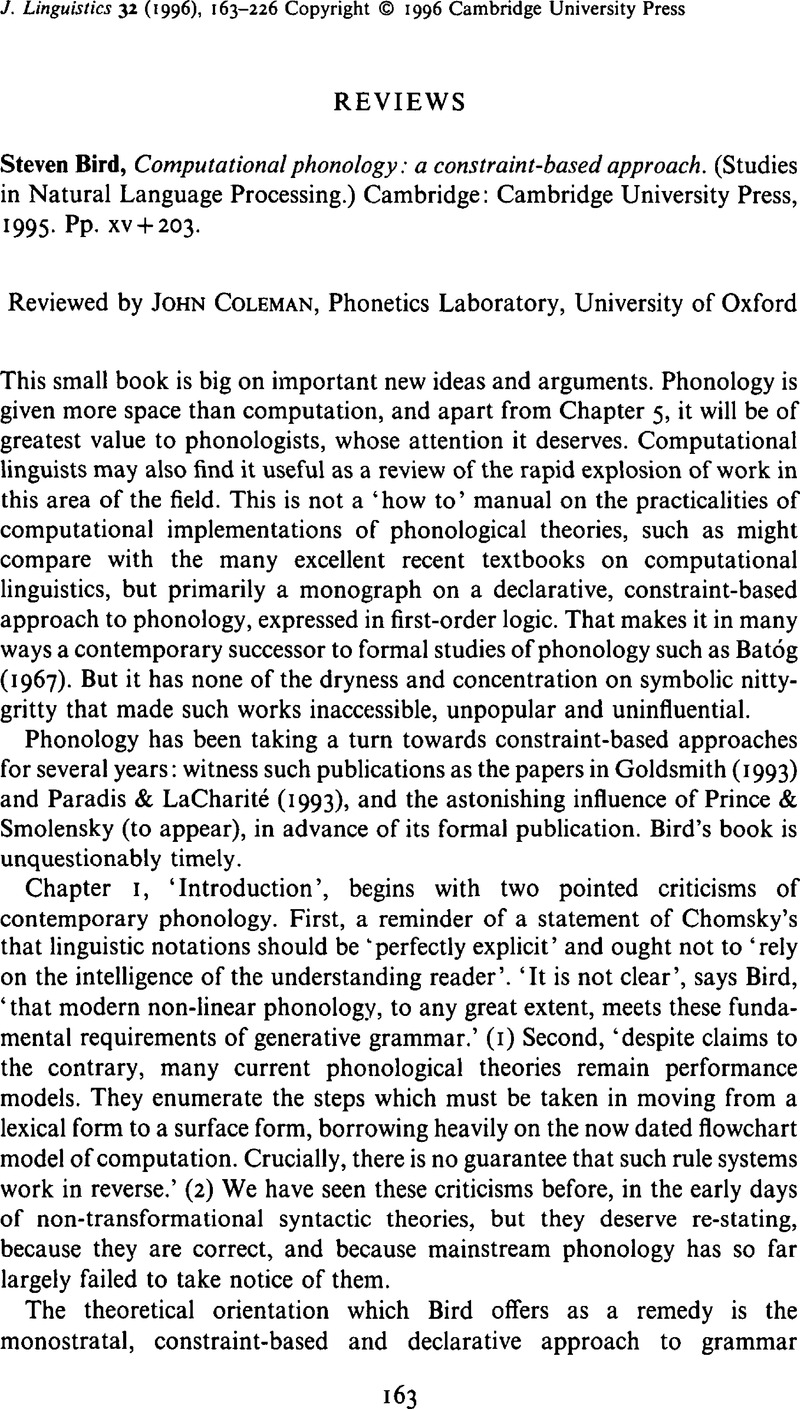No CrossRef data available.
Article contents
Steven Bird, Computational phonology: a constraint-based approach. (Studies in Natural Language Processing.) Cambridge: Cambridge University Press, 1995. Pp. xv+203.
Review products
Steven Bird, Computational phonology: a constraint-based approach. (Studies in Natural Language Processing.) Cambridge: Cambridge University Press, 1995. Pp. xv+203.
Published online by Cambridge University Press: 28 November 2008
Abstract
An abstract is not available for this content so a preview has been provided. Please use the Get access link above for information on how to access this content.

- Type
- Reviews
- Information
- Copyright
- Copyright © Cambridge University Press 1996
References
Batóg, T. (1967). The axiomatic method in phonology. London: Routledge and Kegan Paul.Google Scholar
Bird, S. & Klein, E. (1990). Phonological events. Journal of Linguistics. 26 33–56.CrossRefGoogle Scholar
Chomsky, N. & Halle, M. (1968). The sound pattern of English. New York: Harper and Row.Google Scholar
Goldsmith, J. (ed.) (1993). The last phonological rule: reflections on constraints and derivations. Chicago: The University of Chicago Press.Google Scholar
McCarthy, J. (1991). Synchronic rule inversion. In Proceedings of the Seventeenth Annual Meeting of the Berkeley Linguistics Society. Berkeley Linguistics Society, University of California at Berkeley. 192–207.Google Scholar
Paradis, C. & LaCharité, D. (eds.) (1993). Constraint-based theories in Multilinear Phonology. Special issue of Revue canadienne de linguistique/Canadian Journal of Linguistics 38.Google Scholar
Prince, A. & Smolensky, P. (to appear). Optimality theory: constraint interaction in generative grammar. Cambridge, Massachusetts: MIT Press.CrossRefGoogle Scholar


